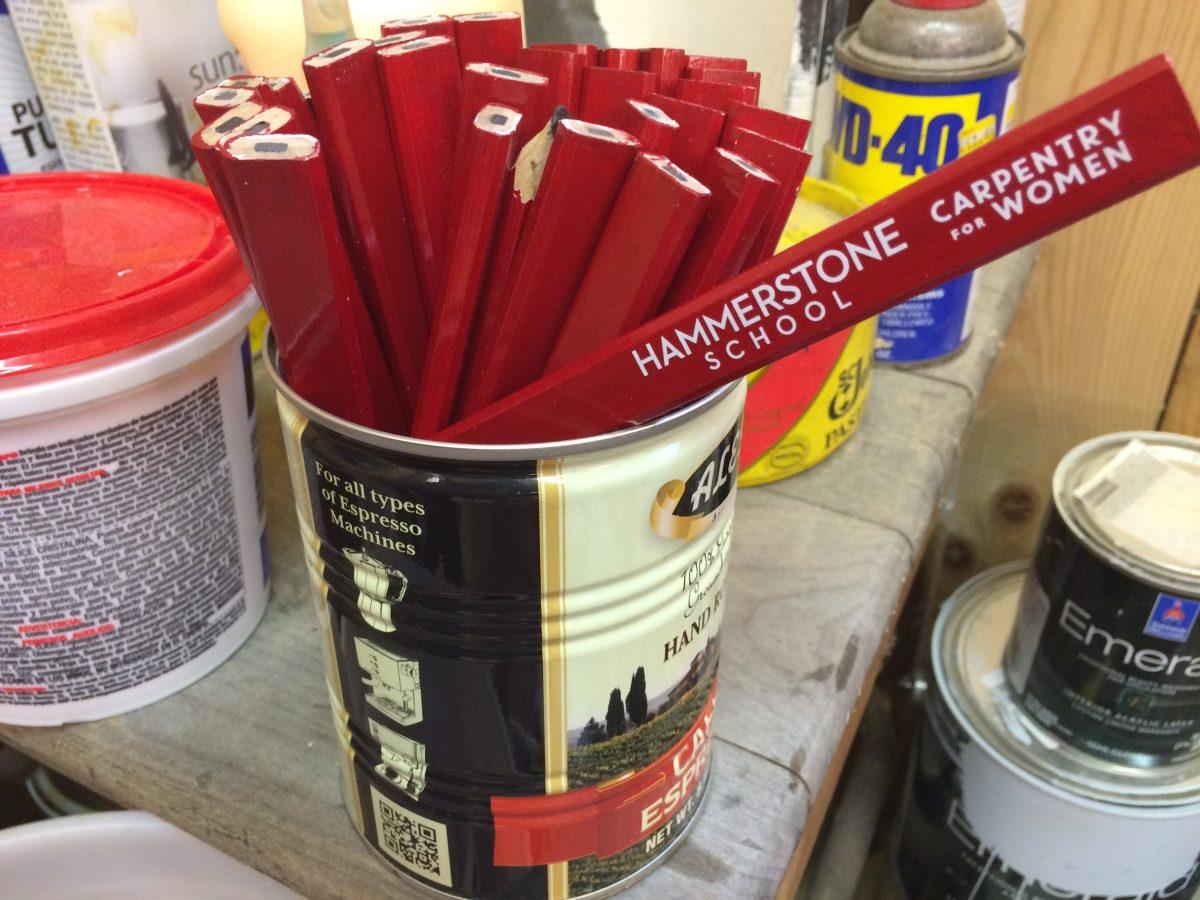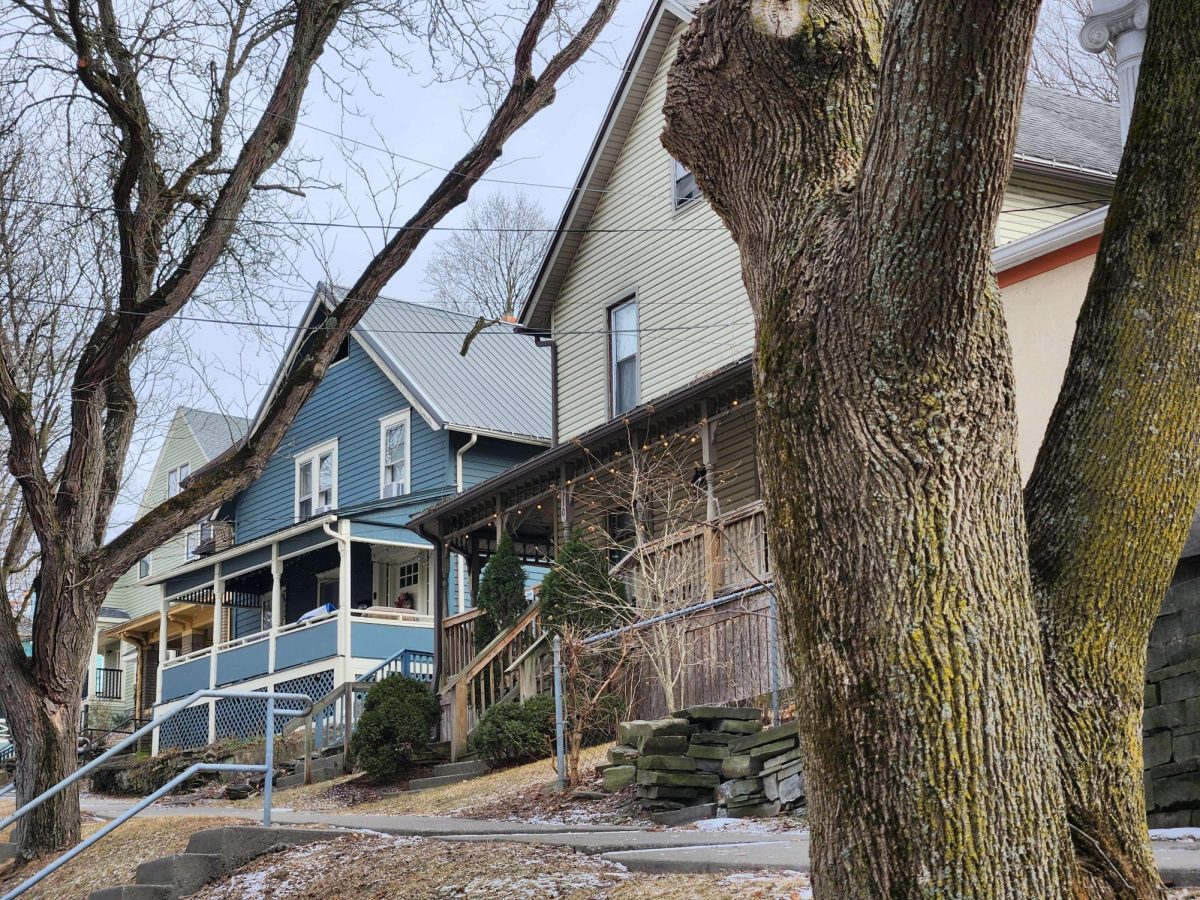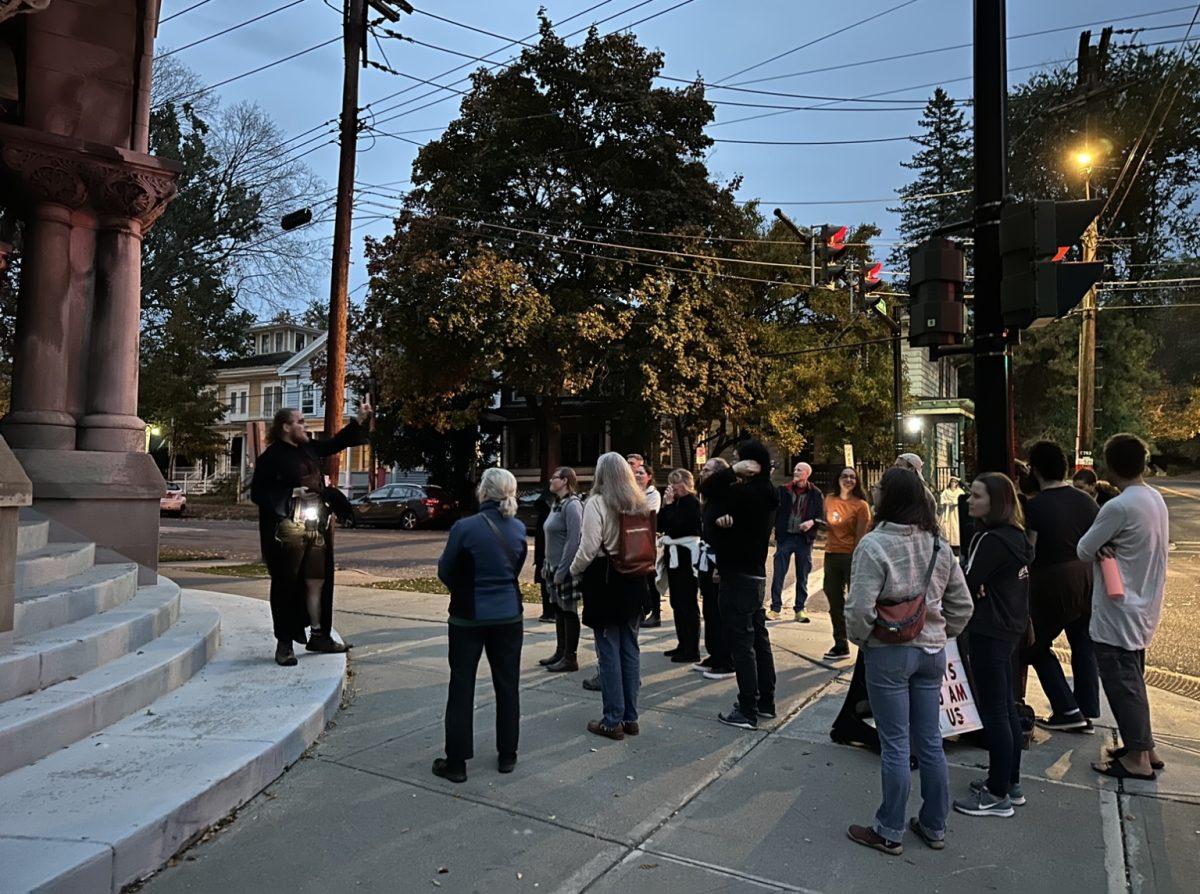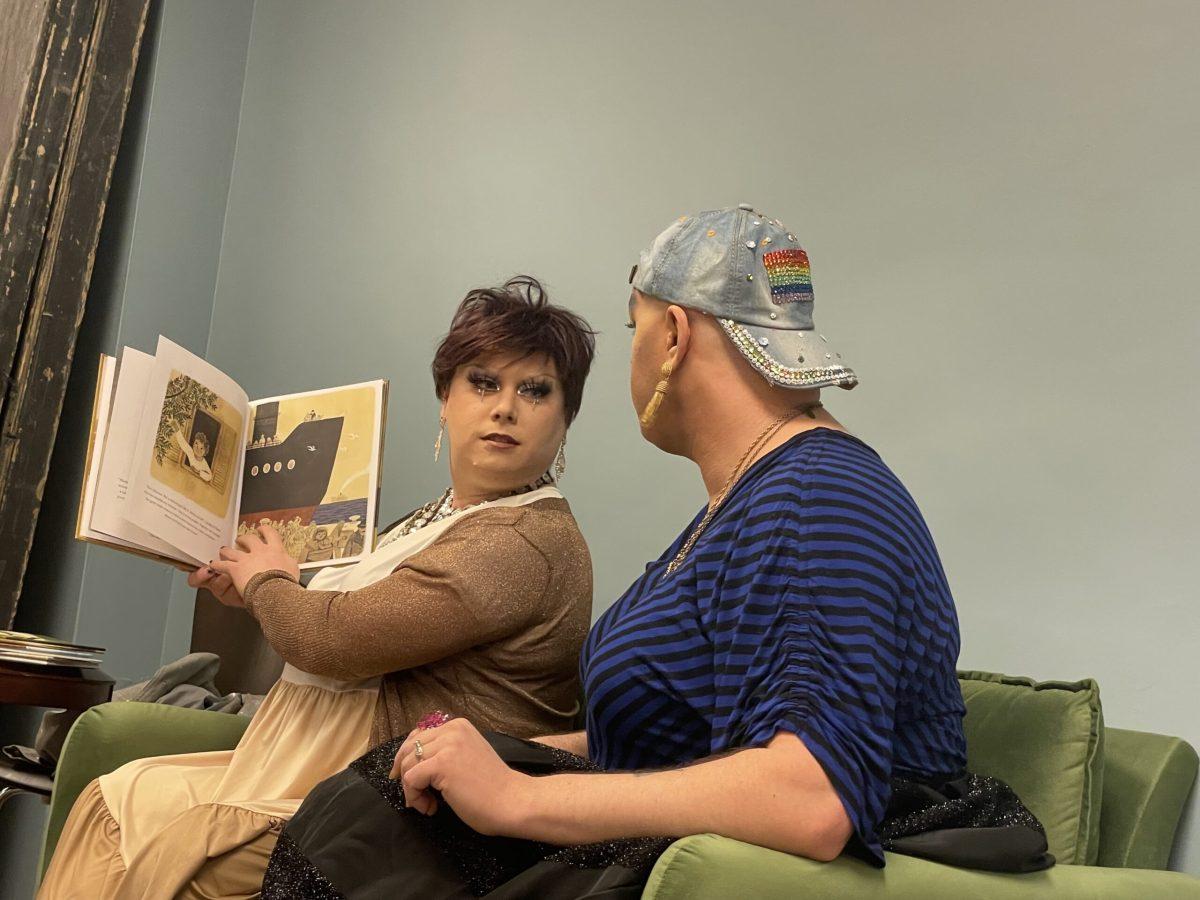Maria Klemperer Johnson opens the door to her workshop and switches the lights on. The fluorescent lamps fill each corner with light, and the musky smell of wood invites students into her space.
The Hammerstone School: Carpentry for Women opened in the winter of 2012. The school provides a safe space for women who have wished to learn carpentry but may have felt intimidated by their male colleagues.
“When I started the school, I had been working in carpentry for 11 or 12 years,” Klemperer Johnson said. “In that time, I can only think of one stretch for about six months where I was working with another woman on a job site. In that entire time, I worked basically with only men.”
According to the Department of Labor, 1.7 percent of carpenters are women. Entering a field dominated by the opposite sex can be both intimidating and challenging — the pressure to succeed and prove oneself overwhelms those who want to learn, Klemperer Johnson said.
“What weighed on me a lot was that I was the spokesperson for my gender in this industry,” Klemperer Johnson said. “I couldn’t mess up, and I still struggle with that. … The only way to change those things was to get more women in the field.”
In the workshop, tools hang on a large wooden board over an unfinished project. Klemperer Johnson walks over to her tool board, places her tea on the table beneath it and prepares for the day’s work.

The Hammerstone School: Carpentry for Women’s wall of tools resides above one of the work tables in the studio. Tools ranging from wrenches to saws are mounted on the wall.
She opens the overhead garage door and meets Christina Alario, former student of Hammerstone and current assistant teacher. Alario steps out of her car, opens the trunk and begins to unload wood for today’s project. Klemperer Johnson walks over to help, and they place the wood panels on one of the work tables.
“I started taking classes with Hammerstone about two years ago,” Alario said. “I tried a couple of classes one summer, and then I went back for more.”
Alario studied at Cornell University’s School of Hotel Administration before working for Hammerstone. She said Hammerstone gave her the confidence she needed in a field dominated by men — and now her passions lie in carpentry.
“We had a workshop here that was put on by a company in Brooklyn [New York],” she said. “There were about 20 people there, and three of us were women. It was kind of intimidating for us. These dudes were all big, burly carpenter guys … and I was like, ‘I don’t know any of these terms, can we slow it down a bit?’”
Before they begin working, Alario and Klemperer Johnson sharpen their carpentry pencils. Unlike standard, hexagonal No. 2 pencils, carpentry pencils are rectangular and flat. They fit easily into a tool belt, won’t roll off an inclined surface and help the carpenter draw precise lines for measuring and marking.
Sharpening a carpentry pencil is one of the first lessons Klemperer Johnson teaches her students. Widling and sculpting the pencil to a flat edge with a box cutter is the only way the pencil can be sharpened — carpentry pencils do not fit into traditional pencil sharpeners. One of the most basic skills in carpentry is learning how to sharpen one of these pencils, and feeling comfortable with this task is a stepping stone to learn more difficult work, Klemperer Johnson said.

Owner and founder of Hammerstone School Maria Klemperer Johnson teaches her students how to sharpen a carpentry pencil. This is one of the first lessons she introduces to her classes.
Feeling comfortable in the classroom helps students get the most out of their education, Susan Adams Delaney, associate professor in the Department of Writing at Ithaca College, said. Working in higher education and specializing in feminist historical rhetoric, Adams Delaney noticed rifts between different students in the classroom and how it affected their learning.
“I know as teachers it’s easier for us to make assumptions about quieter students,” Adams Delaney said. “If you have a young woman who may be quieter, who takes her time, who perhaps is particularly pretty — all of those things, and we will assume she doesn’t have as much to share, that she doesn’t have as much to say. And we may not have created a space where she feels comfortable sharing — that may just be it.”
The environment at Hammerstone School helps the students’ skills blossom, Klemperer Johnson said. Creating a safe space for women to learn from their mistakes encourages them to grow.
“Before they’ve taken this class, there’s this hesitation [women can’t do well],” Klemperer Johnson said. “But we open this door for them, and they feel a lot more comfortable to get a book, watch a YouTube video or ask someone at the hardware store for some advice. And with a little bit of knowledge, they can see where they can go from there.”
With sharpened pencils in hand, Alario and Klemperer Johnson prepare to finish up the work on their tiny house. In Hammerstone’s classes, Klemperer Johnson introduces the tiny house project to her students: a minimalist home with just enough room for a mattress, small couch and a compost toilet. Klemperer Johnson plans to turn her latest house into an Airbnb where people visiting Ithaca can stay.
“That act of learning something new really carries over into all areas of our life,” Klemperer Johnson said. “I think in our culture we tend to stop learning at a certain point in our life, and then we can stagnate. That act of learning — anything — is vibrant and exciting.”

One of the Hammerstone School’s signs sits in their workshop. In addition to teaching carpentry to women, Hammerstone is also a building company.

Hammerstone School’s first tiny house (left) and the school’s new tiny house, still under construction (right). Tiny houses are one of the projects Klemperer Johnson teaches to her Hammerstone students.













